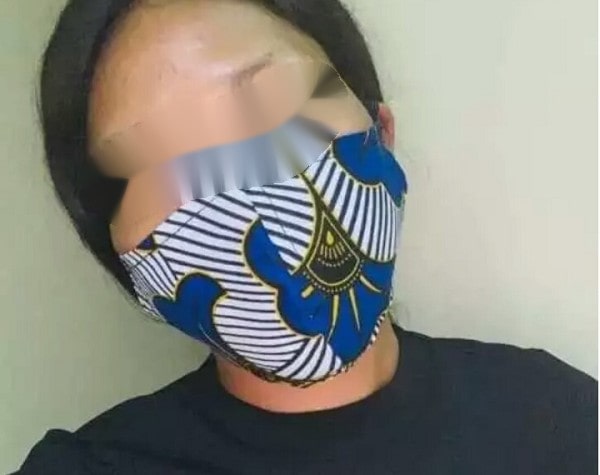
Nose masks flood parts of Eastern Region
The mandatory wearing of nose masks as part of the interventions to stop the spread of the COVID-19 infection has resulted in the flooding of some markets in parts of the Eastern Region with all sorts of masks.
With most businesses and organisations as well as metropolitan, municipal and district assemblies (MMDAs) implementing a ‘no mask, no entry’ policy, patronage of the masks has been very high.
A fact-finding tour of some municipal and district capitals in the Eastern Region, such as Akyem Oda, Akyem Swedru, Asamankese, Kade, Akwatia and Akyem Achiase revealed that some tailors and seamstresses have abandoned their core businesses and are now producing masks to meet the demand.
No FDA and GSA approval
The Daily Graphic observed that samples of the masks on the market had not been tested and approved by the Food and Drugs Authority (FDA) as required.
The masks, most of them made from heavy fabric, make breathing very difficult and do not cover the whole nose and mouth. Each is sold between GH¢1 and GH¢ 5.
Also, they have been produced without consideration for the fabrics and specifications as recommended by the FDA.
The safety regulatory body has advised against the use of print fabric for the home-made nose masks, explaining that prin fabric poses a health risk due to its chemical composition which could be harmful to the respiratory system.
In any event that print fabric is used, the layer of the fabric in direct contact with the face should be plain fabric that is free from chemicals, while a piece of stiff fabric is placed in between the printed fabric and the lining.
Also, the FDA recommends the use of three-layered nose masks made up of calico fabric.
Booming business
Some of the tailors and seamstresses producing the nose masks interviewed by the Daily Graphic said their decision to begin producing the masks was to help people have access to them and protect themselves from possibly contracting the virus.
They said since the announcement that wearing of nose masks had become mandatory with immediate effect, they felt it was necessary to help the people within their areas to have access to the masks rather than cashing in on the situation.
“The President has asked all of us to wear the masks when we come out in public and that is being implemented by various assemblies. Since there were no ready-made masks, I have decided to use my expertise to make some for the people,” a seamstress said.
A tailor also said since business had been slow due to the ban on social gatherings, he had decided to use his professional expertise to provide this essential service.
“No one is making new clothes for functions now and people need the mask, so I decided to make some to meet the demand. It’s more of an important service being rendered than business,” he said.
Some of the producers of the masks also said the approved products were hard to come by, hence their decision to produce the home-made masks to contain the COVID-19 pandemic. They added that they were not aware they had to seek approval from the FDA.
Wrong use
People have been advised to wear the nose masks to prevent person-to-person infection and help curb the spread of the virus, but the Daily Graphic observed that many traders and market women wore them on the chin or under the jaw contrary to the advice that they should wear them once they were in public.
They only wore the masks rightly when they saw the municipal and district chief executives or members of the task face who were enforcing the wearing of the mask.
Asked if they knew about the risk of not wearing the masks rightly, many of the women and traders said they had no idea and that their main concern was to avoid suffocation.
